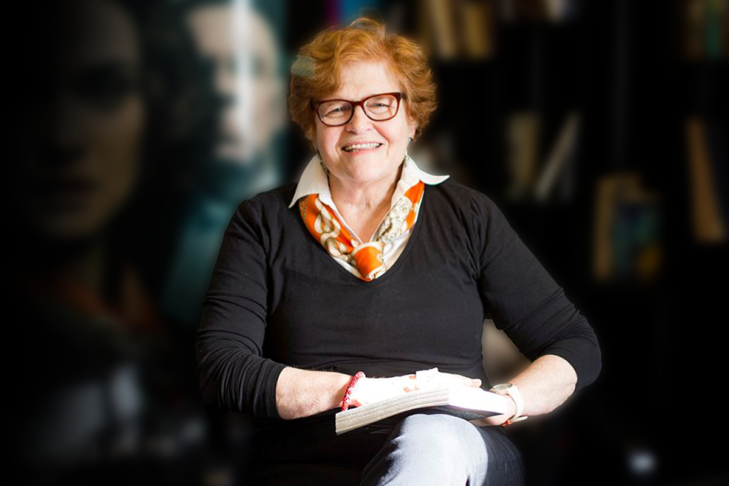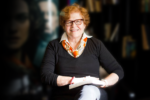As Deborah Lipstadt makes history as the first U.S. special envoy for monitoring and combating antisemitism, local Jewish voices expressed hope in her capacity to meet the challenges of the new position.
“I think Deborah Lipstadt has a unique standing,” said Rob Leikind, regional director of AJC New England. “She is a globally recognized scholar and activist who has the opportunity to explain what antisemitism is in a way I think few people really can.”
That was on display last week, on May 12. In her first public event in her new role, Lipstadt gave an address at the U.S. Holocaust Memorial Museum in which she explained the characteristics of antisemitism, including three that she said are unique—“its age-old nature,” its appearance “from many different places on the political spectrum” and its status as a conspiracy theory. She also said that antisemites are familiar with both “punching down” and “punching up”: “They revile the Jews, but they also fear them.” She addressed the role of Israel in the discussion as well, saying that “criticism of Israeli policies is not antisemitism,” but urged listeners to become vigilant “when there is an imbalance in the criticism.”
Lipstadt also invoked her background as a scholar of the Holocaust at Emory University—including being a defendant in a libel trial involving Holocaust denier David Irving, in which she was ultimately vindicated—in criticizing recent statements made by Russian leaders regarding the war in Ukraine. One phrase that drew her criticism was “Nazi filth,” which was used by Russian president Vladimir Putin to describe the government of Ukraine in a May 8 speech.
“It’s important to remember that her area of responsibility is foreign, not domestic,” said Jonathan Sarna, director of the Schusterman Center for Israel Studies and the Joseph H. and Belle R. Braun Professor of Jewish History at Brandeis University. “She has already made it clear, I think, in her very first day, when she spoke about Russia. She will use social media and her own well-developed skills to call out antisemitism and help to get people to realize what antisemitism is.”
“Educating about antisemitism is key to successfully combating it,” Deborah Coltin, executive director of the Lappin Foundation, wrote in an email. “While [Lipstadt] is a noted historian, par excellence, she is a highly regarded educator at heart. This new role is an opportunity for her to share her skills on a grander level.”
In 2020, Coltin was part of a committee that organized a community read of Lipstadt’s then-new book, “Antisemitism: Here and Now,” which had won the National Jewish Book Award the previous year. She organized a Zoom talk by Lipstadt and got to meet her online prior to the discussion.
“Deborah Lipstadt’s knowledge about and first-hand experience with antisemitism run deep,” Coltin said. “She is bold and brave. Knowledge and fearlessness are necessary in this fight, and Deborah Lipstadt is fearless when it comes to antisemitism. She has the ability to speak with people where they are at, and this, I believe, is one of her greatest strengths.”
In Lipstadt’s talk at the U.S. Holocaust Memorial Museum, she made use of a variety of approaches, from a joke she heard from Soviet refuseniks that helped them cope with antisemitism to contemporary data from the European Commission: “Nine out of 10 European Jews consider antisemitism as a serious problem,” she said.
Although her speech touched on multiple trouble spots for antisemitism worldwide, from Europe to Latin America, she also addressed the threat in the U.S., listing places where antisemitic attacks had occurred. Tragically, days later, on May 14, an 18-year-old gunman allegedly killed 10 people and wounded three others, with most of the victims being Black, in a mass shooting at a supermarket in Buffalo, New York. In a 180-page online document attributed to the gunman, the author “describes himself as a fascist, a White supremacist and an anti-Semite,” according to CNN.
Leikind noted that the document expressed support for a racist idea called “replacement theory,” “a belief about Jews, and in this case Jews and people of color, and the threat they possess. Those ideas give rise to hate.”
“People often think about antisemitism as a sort of hate, and very often it is,” Leikind said. “But antisemitism starts with ideas—ideas about Jews, about Judaism, about the moral universe in which we live in. From there, hate follows. A timely example is what happened [May 14] in Buffalo, an action inspired by ideas, ideas that led someone to do this … similar to ideas which caused the shooting at the Tree of Life synagogue in Pittsburgh [in 2018].”
Although Sarna spoke with JewishBoston before the May 14 shooting, he did allude to the issue of U.S.-based threats: “There are people who have felt there ought to be somebody focused on domestic antisemitism. Of course, the FBI tracks it officially, and there are plenty of other groups—most notably, the ADL tracks it. To have a government position [as Lipstadt’s], obviously it would be based in the State Department. What I think is most important here is that we elevated Deborah Lipstadt’s voice, and we are sorely missing a voice in this area—Elie Wiesel passed away, Abe Foxman retired.”
Sarna added, “I hope very much that she’ll be able to shine a light on worldwide antisemitism that has been too often, I think, overlooked, and at what has allowed it to spread in such an alarming way.”








